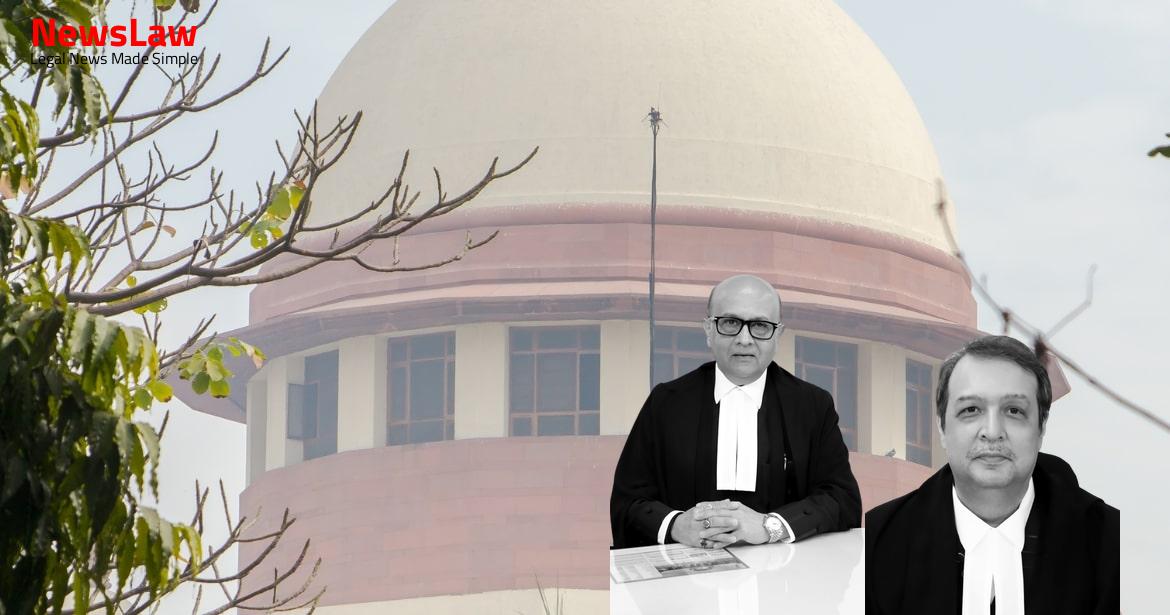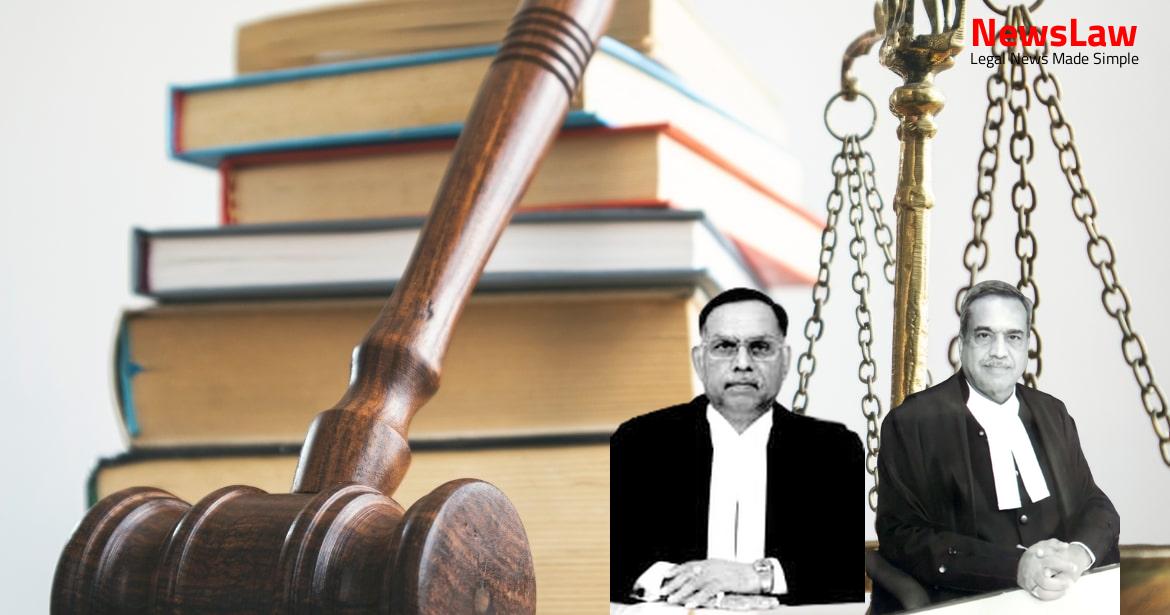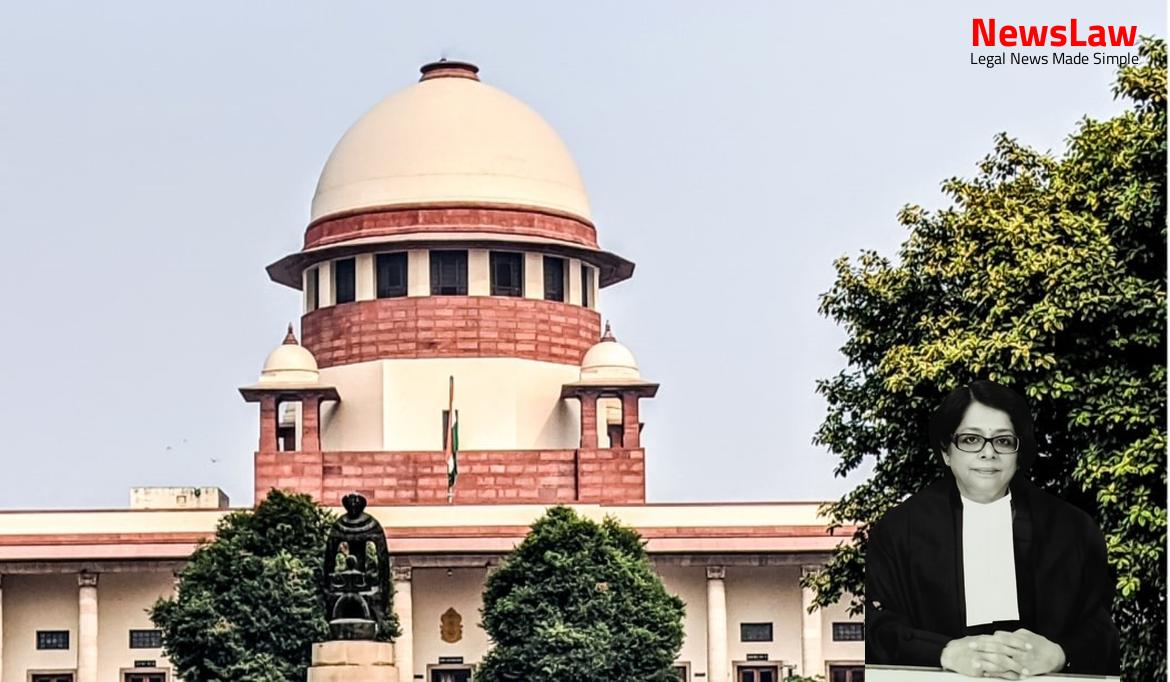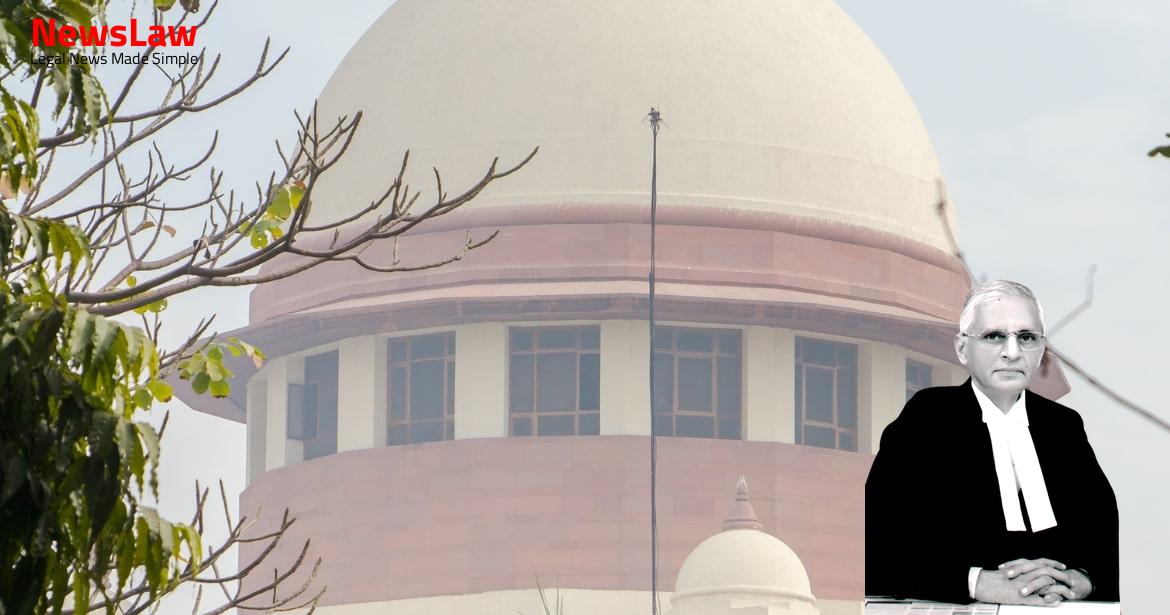In a significant legal development, the Supreme Court of India has issued a decisive ruling in a crucial case involving Criminal Appeal No. 3114 of 2024. This judgement marks a pivotal moment in the legal proceedings and holds profound implications for future cases. Stay informed as we delve into the details and significance of this landmark decision.
Facts
- The High Court rejected the application filed by the appellants
- The court issued process for the offence punishable under Section 406 of the IPC
- The appeal arises from the order of the High Court dated 03.04.2024
- The High Court declined to quash and set aside the summoning order
- The complainant, Vipin Kumar Agarwal, filed a private complaint against the appellants for offenses under IPC sections 406, 420, and 120B.
- The appellants, Delhi Race Club 1940 Limited and Delhi Horse Trainers Association, allegedly cheated the complainant by not paying for goods supplied since 1990.
- A total payment of Rs. 9,11,434/- is due to the complainant from the appellants.
- The complainant tried to resolve the issue through legal notices and seeking police intervention, but no action was taken.
- The court initiated magisterial inquiry under Section 202 of CrPC to investigate the complaint further.
- Statements of witnesses and parties involved were recorded during the inquiry to gather more evidence.
- Despite efforts to communicate and resolve the matter, the appellants failed to pay the outstanding amount owed to the complainant.
- The complainant seeks legal action and justice against the alleged fraudulent behavior of the appellants.
Also Read: Arbitration Dispute Resolution: Key Ruling by the Supreme Court of India
Analysis
- The intention of the accused at the time of inducement is crucial in cases of cheating and criminal breach of trust.
- The distinction between mere breach of contract and criminal breach of trust/cheating is intricate.
- Summon issuance by a Magistrate should not be mechanical, but based on satisfaction of grounds for further proceedings.
- Merits of the case at the summoning stage should determine if there are sufficient grounds for proceeding further.
- Proof of entrustment is sufficient for criminal breach of trust.
- Magistrates should not act as a mere post office for every complaint, but apply judgment before issuing processes.
- The scope of inquiry under Section 202 of the CrPC is limited to determining the truth of the allegations.
- Police must thoroughly investigate allegations to ascertain if cheating or breach of trust occurred.
- A careful distinction between the offences of cheating and criminal breach of trust is essential.
- Criminal liability for breach of trust requires entrustment of property and dishonest misappropriation.
- A civil suit should be pursued if a specific amount is due, rather than criminal proceedings.
- Magistrates must meticulously examine complaints to determine if cheating or breach of trust is justified.
- Continuing criminal proceedings without grounds amounts to an abuse of the legal process.
- The complaint or evidence must establish essential offence ingredients for further criminal proceedings.
- Magistrates must issue process only if satisfied with the allegations made and evidence presented.
- Offences of breach of trust and cheating are distinct, requiring different intentions and actions.
- Orders for police investigation under Section 156(3) should not be equated with taking cognizance.
- Fraudulent intention must be present from the beginning for an act to qualify as cheating.
- Vicarious liability arises if statutory provisions impose such responsibility on office bearers.
- Application of mind is necessary before proceeding with a complaint and issuing processes.
- The words ‘sufficient ground for proceeding’ in Section 204 are crucial
- The order must state the opinion formed after due application of mind
- A reason must be given in the order when concluding a prima facie case against the accused
- The offence of criminal breach of trust requires entrustment of property with the accused
- An offence under Section 420 IPC requires deception and inducing delivery of property
- Criminal breach of trust and cheating have specific ingredients under the IPC
- Taking cognizance and issuing process under the CrPC are distinct actions
- The term ‘entrusted’ in Section 405 IPC implies ownership by someone other than the accused
- The court must analyze each penal section to determine the overt act and state of mind of the accused
- The Magistrate must carefully scrutinize evidence before summoning an accused
- Vicarious liability does not apply to office bearers of a company in certain offences
- The property in criminal breach of trust must belong to someone other than the accused
- The court must ensure the Magistrate applied his mind to form an opinion before issuing a summons
- Before a magistrate can be said to have taken cognizance of an offence under s. 190(1)(a) of the Code of Criminal Procedure, he must have applied his mind to the contents of the petition.
- The magistrate must have done so with the intention of proceeding in a specific manner as outlined in the subsequent provisions of the Chapter.
- This includes proceeding under s. 200 and then sending the case for enquiry and report under s. 202.
- Two provisions of the IPC (now BNS, 2023) are antithetical to each other.
- They are not interdependent and can survive independently.
- The two offences outlined cannot coexist simultaneously in the same set of facts.
Also Read: Land Auction Irregularities Case Involving Prestige H.M. Polycontainers Ltd.
Decision
- The appeal has been allowed, and the impugned orders by the High Court and the Additional Chief Judicial Magistrate have been set aside.
- Criminal Appeal No 3114 of 2024 by the Additional Chief Judicial Magistrate, Khurja, Bulandshahar taking cognizance has also been nullified.
- Pending applications, if any, have been disposed of as well.
Also Read: School Management Dispute: High Court Ruling on Service Conditions
Case Title: DELHI RACE CLUB (1940) LTD Vs. THE STATE OF UTTAR PRADESH (2024 INSC 626)
Case Number: Crl.A. No.-003114-003114 – 2024



